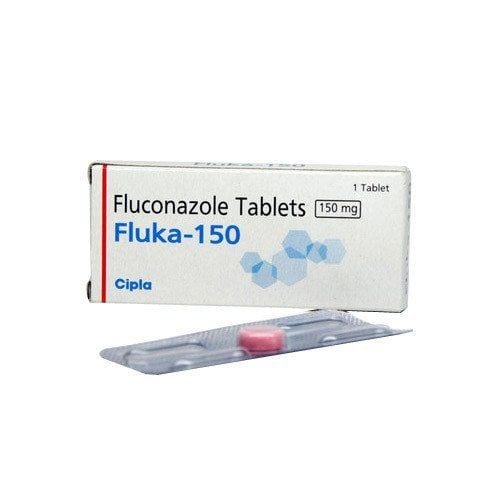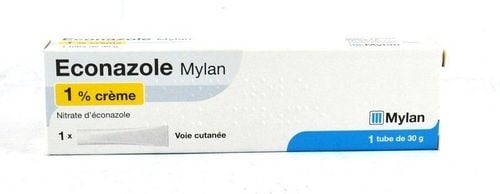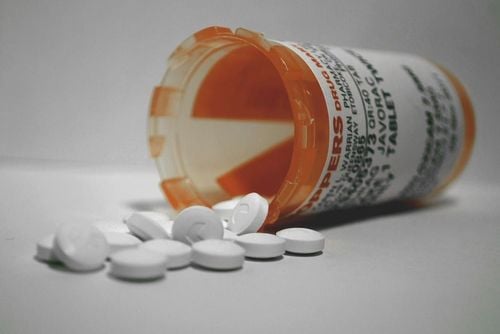This is an automatically translated article.
Fluconazole is a fungicide, commonly used in cases of candida infections. The dose and duration of fluconazole fungicide will depend on the type and severity of the disease, the doctor's prescription and the patient's condition. The treatment must be carried out continuously, with a full course, and must not quit on their own.
1. Introduction to fluconazole
Fluconazole is an antifungal medicine, used to treat infections caused by various fungi. The most common cause of fungal infections is the yeast candida.
Fluconazole is indicated for the treatment of many infections caused by candida, including:
Thrush in men and women Vaginal yeast Irritation of the skin at the tip of the penis (foreskin) Infections in the blood or other parts of the body Fluconazole is also used to treat an infection of the brain, also called cryptococcal meningitis. This condition is caused by a fungus called cryptococcal.
Fluconazole can also be used to prevent fungal infections from developing. The doctor will prescribe it for those who are likely to have an infection, including:
Have recurrent vaginal yeast infections Weakened immune system Have had a bone marrow transplant HIV infected At risk of meningitis due to cryptococcal Fluconazole is available as a capsule or an oral solution. The drug also comes in an injectable form, but only for people who are intolerant or unable to take it. Accordingly, intravenous drug injection must also be performed at a medical facility. Fluconazole is a prescription medication, but you can also buy it at the pharmacy to treat vaginal yeast or balanitis.
MORE: What are commonly used antifungal drugs today?

Nữ giới bị nấm âm đạo có thể được chỉ định dùng thuốc Fluconazole
2. The main information about the drug Fluconazole
Doctors usually prescribe patients to take the antifungal drug Fluconazole once a day. Dosage and duration of medication depend on the type of infection the patient has. The timing of taking fluconazole is not related to meals. That is, the patient can take fluconazole with or without food, because food does not affect the absorption of the drug.
The most common side effects of Fluconazole are feeling nauseous and diarrhea. Especially when using the drug for more than 7 days, you are also easy to notice symptoms such as headache, dizziness, vomiting, abdominal pain, rash, itchy skin.
For thrush, you can buy fluconazole capsules (brand name Canesten Thrush Oral Capsules) or fluconazole capsules with clotrimazole cream (brand name Canesten Thrush Duo) for treatment.
3. Indications and contraindications of the antifungal drug Fluconazole
Most adults and children can take fluconazole, and it can even be prescribed for babies. However, fluconazole is not suitable for everyone, so tell your pharmacist or doctor before taking it if you:
Have ever had an allergic reaction to fluconazole or any other medicines in this medicine. past. People with heart disease, including heart rhythm problems (arrhythmias) Have kidney or liver problems Have acute porphyria - a rare inherited blood disorder Blood tests show high levels of porphyria abnormal levels of potassium, calcium, or magnesium. There are no adequate and well-controlled studies of fluconazole in pregnant women. But in fact, there have been reports of mothers taking high doses of fluconazole to treat fungal infections in the first 3 months of pregnancy and giving birth to babies with multiple birth defects. Therefore, the antifungal drug Fluconazole should be prescribed to pregnant women only when the benefits outweigh the risks. Similarly, nursing mothers should also consider to avoid affecting the infant.

Người mắc chứng rối loạn nhịp tim nên được bác sĩ cân nhắc khi kê đơn thuốc
4. Instructions for taking fluconazole
If prescribed fluconazole, the patient simply needs to follow the doctor's advice. In case you actively buy fluconazole at the pharmacy, follow the instructions that come with the medicine. It is important to complete the course even if you feel better. Treatment must continue until tests show that the disease is completely cured. If you voluntarily quit smoking, treatment is not enough time, there is a risk that the disease will recur.
Fluconazole capsules are available in concentrations of 50mg, 150mg or 200mg. You can take it by swallowing the capsule whole with water, you can also take the fluconazole capsule and solution at any time (with or without food), but it's best to take it by mouth. fluconazole capsules at the same time each day.
Fluconazole solution usually has 2 different concentrations:
50mg fluconazole in a 5ml spoon (50mg / 5ml) 200mg fluconazole in a 5ml spoon (200mg / 5ml) Patients should note, use the plastic spoon that comes with the medicine box. to measure the dose. Do not use regular kitchen teaspoons, as this will not guarantee you the correct dose.
5. Dosage of fluconazole capsules or solution
For adults, the usual dosages include:
Thrush: 50mg a day, for 7-14 days Vaginal thrush or balanitis: 150mg, as a single dose Vaginal thrush continuously recurs : 150mg, first 3 doses every 72 hours. Then take 150mg once a week for 6 months Candidiasis in the blood or other parts of the body: 200mg - 800mg daily, continuously for several weeks Cryptococcal meningitis: 200mg - 800mg daily, continuously for a few weeks Preventing cryptococcal meningitis from recurring: 200mg daily, taken long term Preventing fungal infections if you have a weakened immune system (low white blood cell count): 50mg - 400mg per day, for until the white blood cell count improves For children, the doctor will prescribe the appropriate dose depending on the infection as well as the age and weight of the child.

Thuốc fluconazole có thể được sử dụng theo dạng viên hoặc dung dịch
6. Missed or overdosed Fluconazole
If you miss a dose, take it as soon as you remember, unless it is almost time for the next dose. In this case, simply skip the missed dose and take your next dose as usual, do not take a double dose to make up for the missed dose. If you have to take Fluconazole every 72 hours or once a week, you should use a calendar and mark the days you need to take it. If you miss a dose often, an alarm should be set to remind you. You can also ask your pharmacist for advice on ways to remember to take your medication on time. Accidentally taking an extra 1-2 doses is unlikely to harm you.
Fluconazole is a fungal treatment, to ensure safety and avoid unwanted side effects, patients need to strictly follow the instructions of the doctor or pharmacist.
Please dial HOTLINE for more information or register for an appointment HERE. Download MyVinmec app to make appointments faster and to manage your bookings easily.
Reference source: .nhs.uk













